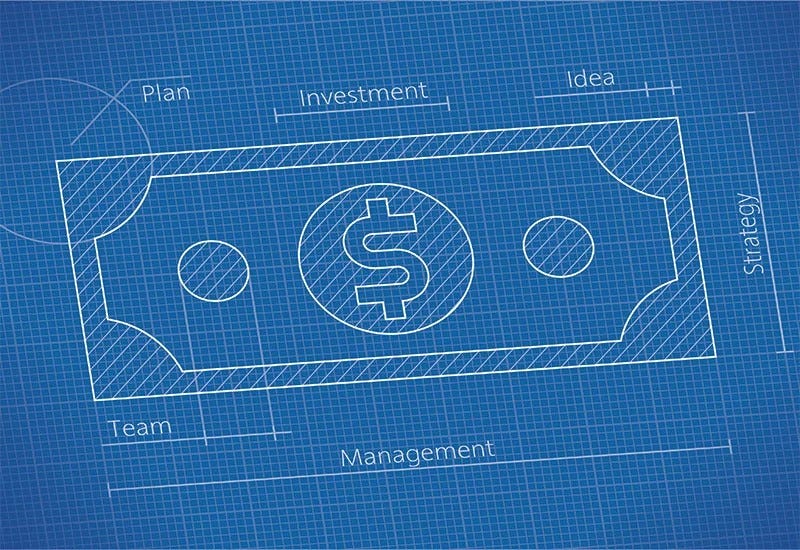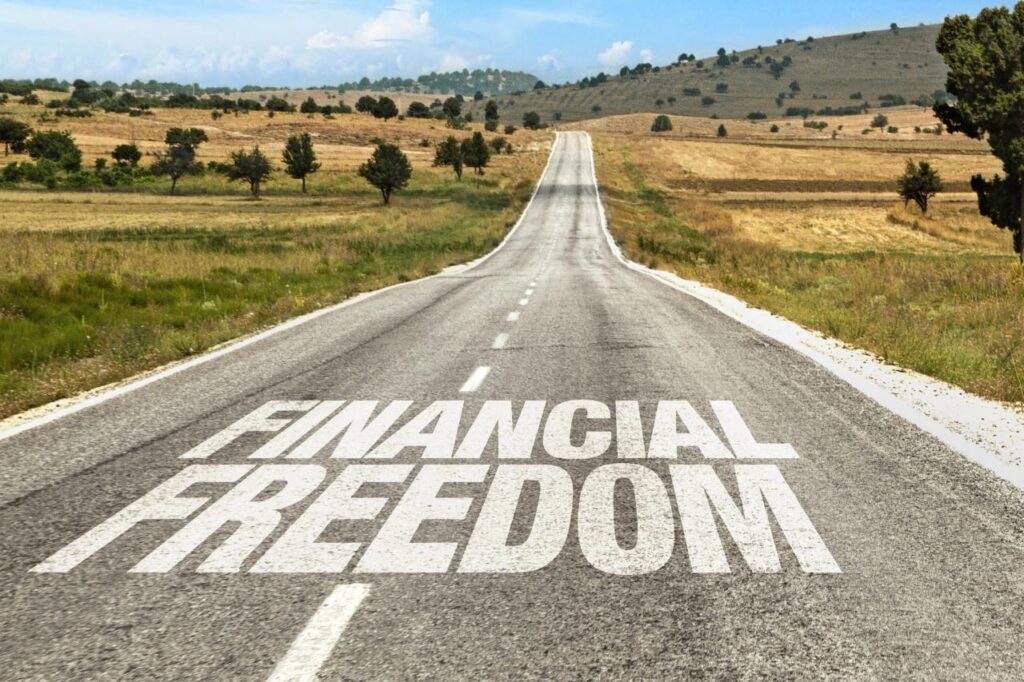In an era defined by economic uncertainty and rising costs, the pursuit of financial freedom has transformed from a distant dream into a tangible, achievable aspiration for millions worldwide. This isn’t just about accumulating wealth; it’s about gaining control over your time, your choices, and ultimately, your life. Financial freedom means having enough passive income to cover your living expenses, allowing you to work because you want to, not because you have to. For individuals striving to break free from the shackles of debt and build a secure future, understanding and implementing effective strategies is paramount. This deep dive into financial independence offers invaluable insights for anyone seeking to optimize their personal finances, making it a highly sought-after topic for those looking to boost Google AdSense revenue through relevant, high-quality content. This comprehensive guide will illuminate the core principles, detailed steps, and advanced tactics essential for crafting your personalized blueprint to financial liberation.
Defining Financial Freedom: Beyond Just Money
Before charting a course, it’s crucial to define what financial freedom truly means. It’s often misunderstood as being “rich” or having an endless supply of money. In reality, it’s a state where your accumulated assets generate sufficient income to cover your lifestyle expenses without requiring active employment. This allows for unparalleled flexibility and choice.
Key characteristics of financial freedom include:
- Passive Income Exceeds Expenses: Your investments, rental properties, businesses, or other passive ventures generate more money than you spend each month.
- Time Autonomy: You have the freedom to dedicate your time to passions, family, travel, or philanthropic endeavors, rather than a demanding job.
- Reduced Financial Stress: The constant worry about bills, debt, or unexpected expenses diminishes significantly.
- Resilience to Economic Shocks: A robust financial foundation provides a buffer against recessions, job losses, or medical emergencies.
- Choice and Purpose: You can pursue work that is meaningful, even if it pays less, or choose not to work at all.
Achieving this state provides profound peace of mind and unlocks opportunities for self-actualization that are unattainable when one is solely focused on earning a paycheck. It’s about designing a life on your terms.
The Foundational Pillars of Financial Freedom
Building financial freedom is akin to constructing a sturdy skyscraper; it requires a strong, well-planned foundation. Neglecting these fundamental steps can undermine even the most ambitious financial goals.
A. Understanding Your Current Financial Landscape
You cannot navigate a journey without knowing your starting point. This initial assessment is critical.
- Track Income and Expenses: Meticulously record every dollar that comes in and every dollar that goes out. Use budgeting apps, spreadsheets, or even pen and paper. This reveals where your money actually goes versus where you think it goes.
- Calculate Your Net Worth: This is a snapshot of your financial health. Subtract your total liabilities (debts) from your total assets (savings, investments, property, etc.). Track this regularly to see your progress.
- Identify Spending Habits and Leaks: Analyze your expense data to pinpoint areas of excessive or unnecessary spending. Are there subscriptions you don’t use? High discretionary spending? These “leaks” are often significant obstacles.
- Review Debt Obligations: List all your debts—credit cards, student loans, car loans, mortgage. Understand interest rates, minimum payments, and total outstanding balances. High-interest debt is a major impediment.
This data-driven self-assessment provides clarity and highlights areas requiring immediate attention and strategic adjustment. It transforms vague financial anxiety into actionable insights.
B. Developing a Comprehensive Budget
A budget is not a restriction; it’s a powerful tool for financial control and intentional spending. It aligns your spending with your financial goals.
- Choose a Budgeting Method:
- 50/30/20 Rule: 50% needs, 30% wants, 20% savings/debt repayment. Simple and effective for many.
- Zero-Based Budgeting: Every dollar is assigned a job (expense or saving). Ensures full accountability.
- Envelope System: Physical or digital envelopes for cash for specific spending categories. Good for visual learners.
- Set Realistic Spending Limits: Based on your expense tracking, allocate specific amounts for different categories (groceries, transport, entertainment, housing). Be honest with yourself.
- Automate Savings: Set up automatic transfers from your checking to your savings and investment accounts immediately after payday. Pay yourself first.
- Regularly Review and Adjust: Life changes, and so should your budget. Review it monthly or quarterly to ensure it remains relevant to your income, expenses, and goals.
A well-maintained budget is your financial GPS, guiding you towards your desired destination.
C. Building a Robust Emergency Fund
This is your financial safety net, protecting you from unexpected life events that could derail your progress.
- Define Your Target: Aim for 3-6 months (or even 12 months for greater security) of essential living expenses. This includes rent/mortgage, utilities, food, insurance, and transportation.
- Separate Account: Keep your emergency fund in a separate, easily accessible savings account, distinct from your checking account. This prevents accidental spending.
- Automate Contributions: Set up automatic transfers to steadily build this fund. Treat it as a non-negotiable “bill.”
- Resist the Urge to Use It (Unless Necessary): This fund is for true emergencies—job loss, medical crisis, major car repair—not for vacations or discretionary spending.
An emergency fund provides invaluable peace of mind, allowing you to weather storms without incurring high-interest debt.
D. Eliminating High-Interest Debt
High-interest debt (like credit card debt or payday loans) is an insidious enemy of financial freedom. It eats away at your income and stifles wealth accumulation.
- List All Debts: Include the balance, interest rate, and minimum payment for each.
- Choose a Repayment Strategy:
- Debt Snowball: Pay off the smallest balance first, then roll that payment into the next smallest. Provides psychological wins.
- Debt Avalanche: Pay off the debt with the highest interest rate first. Mathematically saves the most money.
- Aggressively Attack Debt: Dedicate extra funds from your budget, side hustles, or bonuses specifically to debt repayment.
- Avoid New Debt: Cut up credit cards if necessary, and resist the temptation to take on new loans until existing high-interest debt is cleared.
Freeing yourself from consumer debt is a critical milestone on the path to financial independence.
Accelerating Your Journey: Investment and Income Growth

Once the foundation is solid, the next phase focuses on growing your wealth and increasing your income streams, turning your money into a powerful engine for financial freedom.
A. Investing for the Future: Compounding Your Wealth
Investing is where your money starts working for you, leveraging the power of compounding.
- Understand Investment Basics: Learn about different asset classes: stocks, bonds, mutual funds, exchange-traded funds (ETFs), real estate. Understand risk tolerance.
- Start Early and Consistently: The earlier you begin, the more time compounding has to work its magic. Regular, consistent contributions are more effective than sporadic large sums.
- Utilize Tax-Advantaged Accounts:
- Retirement Accounts (e.g., 401(k), IRA): Offer significant tax benefits (tax-deferred growth or tax-free withdrawals in retirement). Maximize employer matches.
- Health Savings Accounts (HSAs): Triple tax advantage (tax-deductible contributions, tax-free growth, tax-free withdrawals for qualified medical expenses).
- Diversify Your Portfolio: Don’t put all your eggs in one basket. Spread investments across different asset classes, industries, and geographies to mitigate risk.
- Long-Term Mindset: Investing for financial freedom is a marathon, not a sprint. Ride out market fluctuations, and avoid emotional decisions.
- Low-Cost Index Funds/ETFs: Often recommended for beginners and experienced investors alike due to their low fees and broad market exposure.
Investing consistently and wisely is the most powerful vehicle for building long-term wealth.
B. Increasing Your Income Streams
While cutting expenses is important, increasing your earning potential can dramatically accelerate your timeline to financial freedom.
- Negotiate Salary/Seek Promotions: Regularly assess your market value and actively pursue higher compensation in your primary job.
- Develop New Skills: Acquire skills that are in high demand in the job market, making you more valuable and opening up new opportunities.
- Start a Side Hustle: Leverage your skills or hobbies to generate extra income. This could be freelancing, consulting, online courses, content creation, or e-commerce.
- Build Passive Income Sources: This is the ultimate goal for financial freedom. Examples include:
- Rental Properties: Income from tenants.
- Dividend Stocks/Funds: Regular payments from company profits.
- Royalties: From intellectual property (books, music, patents).
- Affiliate Marketing/AdSense: Income from online content.
- Lending: Peer-to-peer lending or private lending.
- Automated Online Businesses: E-commerce stores, SaaS products.
Diversifying your income sources provides security and accelerates your path to financial independence.
C. Strategic Tax Planning
Taxes are often your largest expense. Smart tax planning can free up significant funds for saving and investing.
- Maximize Deductions and Credits: Understand eligible deductions (e.g., student loan interest, HSA contributions) and tax credits that directly reduce your tax liability.
- Utilize Tax-Advantaged Accounts: As mentioned, retirement accounts and HSAs offer significant tax benefits that boost your effective returns.
- Tax-Loss Harvesting (for investors): Selling investments at a loss to offset capital gains and even some ordinary income.
- Consider Tax-Efficient Investments: Some investments (e.g., municipal bonds in certain cases) offer tax-exempt interest.
- Consult a Tax Professional: For complex financial situations, a qualified tax advisor can identify opportunities and ensure compliance.
Effective tax planning is not about avoiding taxes illegally, but about optimizing your financial structure to minimize your legitimate tax burden.
Advanced Strategies and Mindset Shifts for Financial Freedom

Beyond the foundational and acceleration phases, sustained progress towards financial freedom requires a shift in mindset and the adoption of more nuanced strategies.
A. The “Financial Independence, Retire Early” (FIRE) Movement
The FIRE movement is a community dedicated to extreme savings and aggressive investing to achieve financial independence much earlier than traditional retirement age.
- High Savings Rate: Often 50-70% or more of income. This requires significant discipline and often a high income or very low expenses.
- The “25x Rule” (or 4% Rule): A common guideline stating that you are financially independent when you have saved 25 times your annual living expenses. This allows for a “safe withdrawal rate” of 4% of your portfolio per year, theoretically allowing your money to last indefinitely.
- Focus on Expense Reduction: Extreme frugality is often a hallmark, reducing the target financial independence number.
- Variations of FIRE:
- Lean FIRE: Living on a very minimalist budget in retirement.
- Fat FIRE: Living on a larger, more comfortable budget.
- Barista FIRE: Having enough passive income to cover essentials, but still working part-time for benefits or extra income.
- Coast FIRE: Saving enough in early career that investments compound to traditional retirement age without further contributions.
While extreme, the FIRE principles offer powerful lessons in intentionality and disciplined wealth building.
B. Geo-Arbitrage and Lifestyle Design
Financial freedom often opens doors to designing a lifestyle that optimizes for happiness and cost-efficiency.
- Geo-Arbitrage: Earning income in a high-cost country (or currency) and spending it in a low-cost country. This can significantly extend the purchasing power of your passive income.
- Digital Nomadism: Leveraging remote work or passive income to live and travel globally, often choosing locations with a lower cost of living.
- Minimalist Living: Adopting a minimalist mindset reduces the desire for excessive consumption, lowering your “enough” number for financial freedom.
- Location Independence: Structuring your income sources and lifestyle so that you are not tied to a specific geographic location.
These strategies emphasize that financial freedom is about more than just accumulating money; it’s about optimizing your life choices.
C. Continuous Learning and Adaptation
The financial landscape is constantly changing. Staying informed is crucial for sustained success.
- Read Books and Articles: Continuously educate yourself on personal finance, investing, economic trends, and new income-generating strategies.
- Follow Reputable Financial Experts: Learn from those who have achieved financial success and share valuable insights.
- Stay Updated on Regulations: Tax laws and investment regulations can change, impacting your strategies.
- Adapt Your Plan: Be flexible. What worked five years ago might need adjustment today. Your goals might also evolve.
A growth mindset is as important for financial growth as it is for personal development.
D. Protecting Your Assets and Legacy Planning
Once you’ve built wealth, protecting it becomes paramount.
- Insurance: Adequate health, life, disability, home, and auto insurance protect your assets from unforeseen catastrophes.
- Estate Planning: A will, trusts, and power of attorney ensure your assets are distributed according to your wishes and minimize tax burdens for your heirs.
- Cybersecurity: Protecting your financial accounts from fraud and theft is increasingly important in the digital age.
- Diversification: Not just in investments, but also in passive income streams, to avoid over-reliance on a single source.
Protecting your financial fortress is as important as building it.
Common Pitfalls on the Path to Financial Freedom
The journey to financial freedom is not without its obstacles. Being aware of common pitfalls can help you avoid them.
A. Lifestyle Inflation
As income rises, so does spending. This “hedonic treadmill” can keep you from reaching your financial goals, as your “enough” number constantly increases.
- Solution: Practice conscious spending. Automate savings before spending. Regularly review your wants versus needs.
B. Analysis Paralysis
Overthinking or over-researching without taking action. Waiting for the “perfect” time or investment can lead to missed opportunities.
- Solution: Start small, start now. Imperfect action beats perfect inaction. Learn as you go.
C. Chasing Get-Rich-Quick Schemes
Falling for promises of unrealistic returns or instant wealth. These often lead to significant financial losses.
- Solution: Understand that wealth building is a long-term game. Focus on consistent, sustainable strategies.
D. Ignoring Debt, Especially High-Interest Debt
Allowing high-interest debt to linger will compound against you, eroding your net worth and progress.
- Solution: Make debt repayment a top priority, second only to building a small emergency fund.
E. Lack of Consistency and Discipline
Sporadic efforts in budgeting, saving, or investing will yield sporadic results.
- Solution: Build financial habits. Automate as much as possible. Regularly review your progress to stay motivated.
F. Emotional Investing
Making investment decisions based on market hype, fear, or greed, rather than a sound, long-term strategy.
- Solution: Stick to your investment plan. Diversify. Understand that market fluctuations are normal.
Empowering Your Life Through Financial Control
Financial freedom is more than just a monetary target; it’s a transformative life philosophy that prioritizes intentionality, security, and autonomy. It is the profound state where your accumulated assets generate sufficient passive income to comfortably cover your living expenses, liberating you from the necessity of active employment and granting you ultimate control over your most precious resource: time. By meticulously building a strong financial foundation—understanding your cash flow, adhering to a disciplined budget, establishing a robust emergency fund, and aggressively eradicating high-interest debt—you lay the groundwork for true independence.
The journey then accelerates through smart, consistent investing, leveraging the compounding power of your capital, and strategically diversifying your income streams to create multiple avenues of wealth generation. Advanced strategies like the FIRE movement principles, coupled with lifestyle design choices such as geo-arbitrage, further empower you to tailor your financial independence to your unique aspirations. While common pitfalls like lifestyle inflation and emotional investing exist, they can be navigated with discipline, continuous learning, and a long-term perspective.
Ultimately, crafting your blueprint to financial freedom isn’t merely about accumulating dollars; it’s about architecting a life of purpose, choice, and profound peace of mind. It’s about ensuring resilience against economic uncertainties and creating a legacy that extends beyond monetary value. Embrace this journey with clarity, commitment, and consistent action, and you will unlock not just financial security, but a truly empowered and self-directed existence. For content creators, this topic resonates deeply with a universal desire for security and autonomy, making it an evergreen source for valuable content that drives engagement and robust online earnings.







